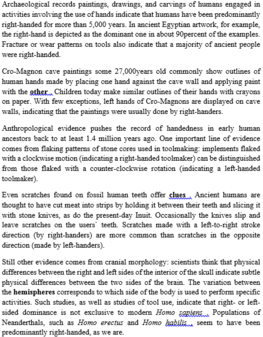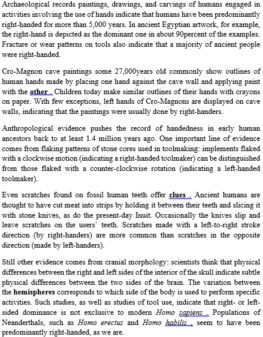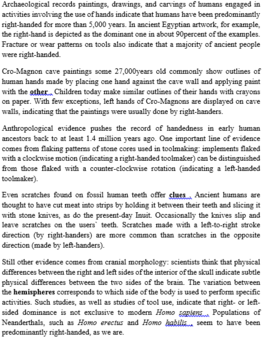Read the following passage and mark the letter A, B, C, or D on your answer sheet to indicate the correct answer to each of the questions from 36 to 42.
Even with his diverse experience as an elected official at the state level, Andrew Johnson was the first president of the United States ever to be impeached, primarily because of his violent temper and unyielding stubbornness. His career started in 1828 with his collection to the city council of Greenville, Tennessee, and after two years as an alderman, he took office as mayor. His advancements followed in rapid succession when he was elected to the Tennessee state senate, then as the state governor, and later to the U.S. House of Representatives for five consecutive terms.
In 1864, Johnson ran for the office of vice-president on the Lincoln- Johnson ticket and was inaugurated in 1865. After Lincoln’s assassination six weeks into his term, Johnson found himself president at a time when southern leaders were concerned about their forced alliance with the northern states and feared retaliation for their support of the secession. Instead, however, with the diplomatic skill he had learned from Lincoln, Johnson offered full pardon to almost all Confederates on the condition that they take an oath of allegiance. He further reorganized the former Confederate states and set up legislative elections.
Congressional opposition to his peace- making policies resulted in gridlock between the House and Johnson, and the stalemate grew into an open conflict on the issue of the emancipation of slaves. While Johnson held the view that newly freed slaves lacked understanding and knowledge of civil liberties to vote intelligently, Congress overrode Johnson’s veto of the Civil Rights Bill, which awarded them citizenship and ratified the Fourteenth Amendment. In the years that followed, Congress passed bills depriving the president of the power to pardon political criminals, stripping away his status of commander-in-chief, and taking away Johnson’s right to dismiss civil and executive officers from their duties. Johnson vetoed each bill, and each veto was overridden. When Johnson dismissedvthe secretary of war, Edwin Stanton, Stanton refused to step down and was supported by the House of Representatives, which voted to impeach Johnson. At the trial, the Senate came one vote short of the two-thirds majority necessary to remove him from office. After Johnson’s term expired, he returned to his home state, but in 1875 he was elected senator and went back to Washington to take his seat.
The author of the passage implies that when Johnson became president he
A. had already experienced political turmoil
B. was a dedicated supporter of civil rights
C. was a soft-spoken and careful diplomat
D. had an extensive background in politics






Đáp án D
Giải thích: Even with his diverse experience as an elected official at the state level, Andrew Johnson was the first president of the United States ever to be impeached, primarily because of his violent temper and unyielding stubbornness.
Dịch nghĩa: Ngay cả với kinh nghiệm đa dạng của mình như là một viên chức dân cử ở cấp tiểu bang, Andrew Johnson là tổng thống đầu tiên của Hoa Kỳ từng bị luận tội, chủ yếu là vì tính khí bạo lực của mình và sự bướng bỉnh không chịu thua.
Ở cấp tiểu bang, Andrew Johnson đã có kinh nghiệm đa dạng trong lĩnh vực chính trị, hàm ý là khi ông lên làm tổng thống, ông đã có nền tảng chính trị dày dặn.
Phương án D. had an extensive background in politics = đã có một nền tảng rộng lớn trong chính trị, là phương án chính xác nhất.
A. had already experienced political turmoil = đã có kinh nghiệm bất ổn chính trị.
After Lincoln’s assassination six weeks into his term, Johnson found himself president at a time when southern leaders were concerned about their forced alliance with the northern states and feared retaliation for their support of the secession = Sau vụ ám sát Lincoln sáu tuần vào nhiệm kỳ của mình, Johnson thấy mình là tổng thống tại một thời điểm khi các nhà lãnh đạo miền Nam lo ngại về liên minh bắt buộc của họ với các bang miền Bắc và sợ bị trả thù cho sự ủng hộ của sự ly khai.
Sự bất ổn chính trị xảy ra sau khi ông lên làm tổng thống chứ không phải trước.
B. was a dedicated supporter of civil rights = là một người ủng hộ nhiệt tình của các quyền dân sự.
While Johnson held the view that newly freed slaves lacked understanding and knowledge of civil liberties to vote intelligently, Congress overrode Johnson’s veto of the Civil Rights Bill, which awarded them citizenship and ratified the Fourteenth Amendment = Trong khi Johnson có quan điểm rằng các nô lệ mới được trả tự do thiếu hiểu biết và kiến thức về tự do dân bầu một cách thông minh, Quốc hội gạt quyền phủ quyết của Johnson về Bản dự luật Quyền Dân sự, cái trao cho họ quyền công dân và phê duyệt Tu chính án thứ mười bốn.
Như vậy ông là một người ủng hộ nhiệt tình của các quyền dân sự, nhưng sự việc đó xảy ra sau khi ông lên làm Tổng thống.
C. was a soft-spoken and careful diplomat = là một nhà ngoại giao nói nhỏ nhẹ và cẩn thận.
Instead, however, with the diplomatic skill he had learned from Lincoln, Johnson offered full pardon to almost all Confederates on the condition that they take an oath of allegiance. = Thay vào đó, tuy nhiên, với các kỹ năng ngoại giaoông đã học được từ Lincoln, Johnson cung cấp lệnh tha bổng hoàn toàn cho gần như tất cả các quân miền Nam với điều kiện là họ phải thề trung thành.
Như vậy Johnson không hề là một nhà ngoại giao nhỏ nhẹ và cẩn thận mà rất quyết đoán.